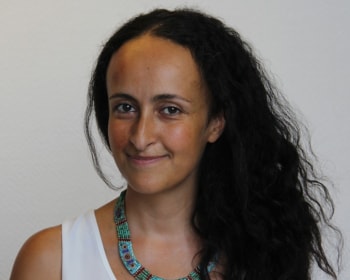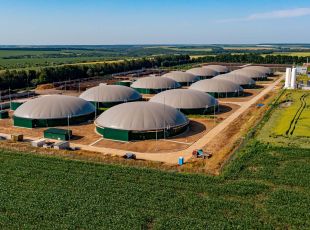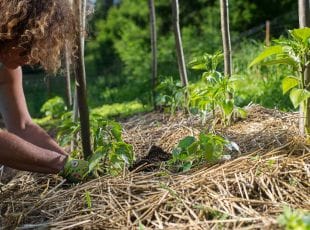Social entrepreneurship
Impact structures use their hybrid business model to generate a strong positive social and/or environmental impact, while pursuing economic viability. Whether start-ups or SMEs, associations, cooperatives or microfinance institutions, they develop efficient solutions to reduce our climate and environmental impact, promote social inclusion, and level inequalities.
A solid commitment to the Social and Solidarity Economy (SSE) and to impact entrepreneurs
BNP Paribas plays a key role in financing these structures by offering them banking and financing products as well as expert advice. The Group also provides them with a methodology for measuring their impact. Through its targeted investments and powerful tools, BNP Paribas is actively contributing to the development of a more responsible and inclusive economy.
BNP Paribas dedicated programmes to support impact structures
Since 2014, the Act for Impact programme in France has supported 2,200 impact structures and raised more than €1.2 billion in bank financing. To take account of the specificities of these new business models, we have developed a proprietary analysis grid for financing these positive impact projects. We have trained 200 bankers in impact entrepreneurship, who organise strategic introductions to help impact businesses move faster. Our clients also have access to innovative solutions such as impact bonds, developed by the PIIBA team, and solidarity savings plans for employees, offered by BNPP Asset Management. Our programme helps impact structures make their transition faster and more sustainable."
Our partners are inventing a more inclusive and sustainable economy by addressing the needs of an ever-changing and evolving society. To best support them in their inspiring innovations, we need to be flexible, responsive and creative, and that's what PIIBA is all about. We are very proud to work with them on a daily basis as we continue to innovate to accelerate the impact economy!”
Employee savings to support SSE actors
Did you know? Each employee savings plan (PEE, PERECO and PERO) has at least one solidarity fund. These funds invest between 5% and 15% of their assets directly in social and solidarity economy organisations having a strong social and /or environmental impact..
At BNP Paribas, these plans allow employees to give meaning to their savings by making a very concrete contribution to the development of more than 30 ESS entities. These organisations operate in seven impact areas: access to housing, access to employment, access to health and ongoing autonomy, microfinance & entrepreneurial support; housing for dependent persons, environmental protection, and international solidarity. In 2024, solidarity funds distributed by BNPP E&RE and managed by BNP Paribas Asset Management provided 161 million euros to these entities. The impact generated can be seen each year in BNP Paribas’ E&RE report.
Examples of some of BNP Paribas’ tools for impact entrepreneurs
In order to support and guide these entrepreneurs in their development, and to ensure that this support produces results, BNP Paribas has developed an innovative financing system and specific measurement tools.
Impact investment: providing patient capital
To be considered 'impactful', an investment must be made with a specific goal in mind and provide concrete solutions to social or environmental needs that are currently poorly addressed or not addressed at all. These solutions must then generate a measurable societal impact. An impact investment is based on three basic criteria:
- Intentionality: the investment must be made with the stated goal of providing a specific solution to a social or environmental problem that is currently receiving little or not attention;
- Additionality, or the investor’s contribution: the investor’s differentiating contribution – not necessarily financial - that makes a difference and accelerates or optimises the implementation of a solution;
- Measurability: the results are monitored and assessed on an ongoing basis using concrete indicators.
Through a dedicated budget drawn from its own equity, BNP Paribas supports the development of impact structures by providing them with financing or an investment. For example, the Group has invested in Blue Alliance, which finances sustainable community enterprises involved in the management of marine protected areas in developing countries; Meet My Mama, which helps a diverse group of women to develop a catering business; and Ecodair, which employs disabled people or people far removed from the labour market to recycle and refurbish computer equipment. Since 2021, 102.3 million euros have been committed to directly or indirectly support 212 organisations in 25 countries.
Since then, the Group has consolidated its expertise in structuring impact bonds and supporting the expansion of the market by creating new investment capacities. At the end of December 2024, BNP Paribas had structured 28 impact bonds for a total of €92.5 million. BNP Paribas Asset Management has teamed up with long-standing investors in the market to create its second dedicated fund. Certified by Finansol and in compliance with the ESUS (Solidarity and Socially Useful Company) section of the French Hamon Law on the Social and Solidarity Economy, this €61 million fund is designed to expand the use of impact bonds in Europe.
Social impact bonds: key dates
Launch of Act for Impact, a programme to support impact companies. Development of the MESIS measurement methodology
In partnership with ADIE, BNP Paribas structures the first impact bond in France, to promote the economic and social integration of isolated rural areas through microcredit
The Group's impact investment budget reaches €200 million, with priority given to direct investments
First direct investment with an equity stake in Printemps des Terres, a company that acquires farmland and forest for sustainable reuse
Publication of BNP Paribas’ first activity and social performance report.
PIBA becomes PIIBA, the Positif Impact and Inclusion Business Accelerator, and publishes its second annual report which now includes microfinance and social inclusion in addition to its historical activities of impact investments and bonds.









